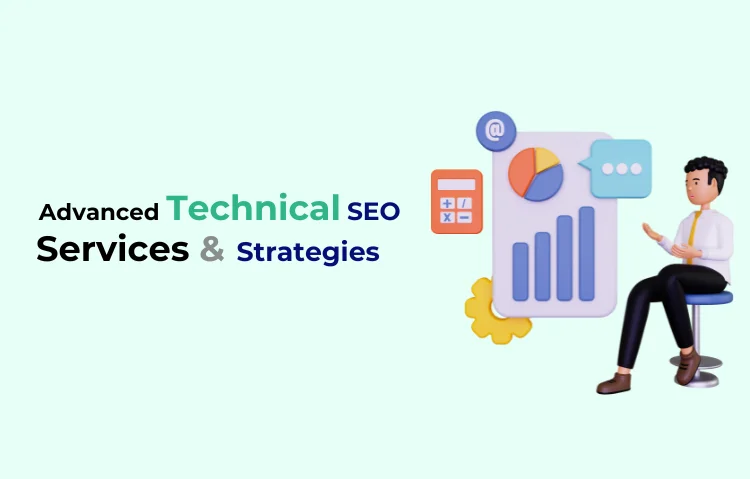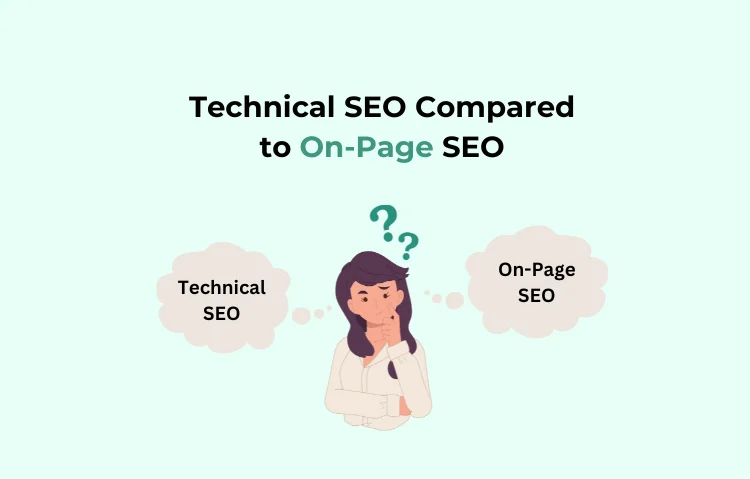What is Advanced Technical SEO?
Technical SEO means fixing the technical parts of your website so search engines can crawl and index it better. This involves stuff like how your site is built, its code, and how fast it loads. When you improve these technical things, your website can show up better in search results, making it easier for people to find.

- Crawling: Search engines find new and changed content by sending out search spiders. These spiders look through websites, collecting information to save and use for searching later.
- Indexing: Search engines keep track of content they find while searching websites. Once a page is on their list, it can show up in search results if it matches what someone is looking for.
“Did you know?
In the early days of search engines, search engines relied on human editors to submit and categorize websites.”
Importance of Advanced Technical SEO
Technical SEO is important because it helps make your website easy for search engines to figure out. When a search engine can look through, list, and show your web pages correctly, it makes it more likely for your site to appear high up in search results.
Also, technical SEO can make your website better for people who visit it. When pages load quickly and the website is easy to use, it can really make a positive impact on your visitors.
Does technical SEO pose challenges?
Improving your website’s technical SEO might seem hard at first, but it gets easier with practice. Remember, the key is to make your site easy for search engines to find and list. This involves organizing your pages well and fixing any mistakes, along with giving clear info about your content.
Also, work on making your site faster and better.
Even though it might feel like a big task, the benefits are great—technical SEO can bring in more visitors and boost your search engine position.

→ URL Organization for Improved SEO
Keep your URL structure simple for both search engines and people to understand. Use hyphens for clarity instead of adding ID numbers. If your website uses languages like Japanese, Chinese, or German, consider using UTF-8 encoding. Avoid using special characters in URLs.
→ Safeguarding your website
Having a secure website is important for SEO success. This means using HTTPS on your site. HTTPS is a small factor that can help your site rank better, and it’s great for keeping users safe. If your website has security issues like malware or phishing, search engines might skip over it.
→ Website Speed and Efficiency Score
What’s a website’s page speed score, and does it impact its search ranking? Using Google’s tools, managers can identify areas for improvement in site speed. Aiming for a score between 50 and 89 is decent, but achieving 90 to 100 is even better.
→ Page Index
A page index is important because it lists all the web pages, images, videos, and other things on your site. Robots usually check this index first to see which pages they can look at and remember later. If your site is small and has lots of links, robots can find it easily.
→ Compatible with Mobile Screens
As smartphones become more popular, it’s crucial that websites function effectively on them. Ensuring your site is mobile-friendly is vital for enhancing its quality. This involves optimizing its appearance and functionality for mobile users by adjusting elements like images, text size, and layout to fit smaller screens and improve readability.
→ Structured Content Markup
Google and other search engines try their best to understand what a website is about, even without structured data. But when we add structured data to our web pages, it helps search engines understand them faster. Google supports at least 32 different types of structured data for websites

For a website to do well in search engine results, it needs technical SEO. This means designing the site so search engines can easily find and list it. It also means having fast-loading pages without any mistakes. Plus, the website’s layout should be simple to understand. If you don’t do these things, your site won’t show up well in search results.
“Did you know?
Google processes over 63,000 search queries every second on average. With that kind of competition, having a technically sound website can significantly increase your chances of being seen by the right users”

Many people think technical SEO and on-page SEO are alike, but they’re actually quite different. Technical SEO deals with the technical parts of your site that affect how search engines see it. This includes stuff like how the site is built, its code, and how fast it loads.
On-page SEO is about making each page on your site better. It involves things like titles, descriptions, and keywords. To make sure your website shows up well in searches, you need to work on both technical and on-page SEO, not just one.
Core Insight
Technical SEO is super important for making sure your website shows up well in search results. It deals with all the stuff behind the scenes that Google and other search engines need to understand your site properly.
If you don’t do technical SEO right, it’s hard to show up in searches, especially at the top. That’s why we made this guide—to help you check and fix any problems on your website and boost your rankings with these 11 steps.
If you want us to handle your technical SEO for you, take a look at our technical SEO Services.

